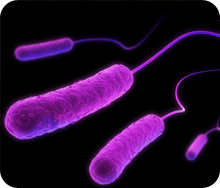
This is an update to the previous blogs:
Here is an excerpt of the Canadian Food Inspection Agency’s (CFIA) wrap-up of the E. coli O157:H7 Food Safety Investigation on Gort’s Gouda Cheese Farm.
Establishment Investigation
The CFIA conducted an in-depth investigation at the Gort’s Gouda Cheese Farm facility from September 18-25, 2013 to examine potential sources of contamination. The British Columbia Ministry of Agriculture, the BC CDC and the British Columbia Interior Health Authority also inspected sections of the facility where the CFIA‘s authority does not extend, including the milking and retail areas.
The CFIA focused its inspections on conditions and practices within the processing area and reviewed in detail the processing, maturation, cutting and packaging areas. Environmental samples at the facility were also obtained from locations where contamination may occur but all were reported to be clear of E. coli O157:H7.
Root Cause Analysis
The root cause analysis for this event was based on inspection findings and data from epidemiological and testing analyses.
The initial epidemiological conclusion that unpasteurized, not pasteurized, cheese products were likely the source of the outbreak was supported by results from products sampled by the CFIA as well as the health risk assessment from Health Canada given only to certain raw milk cheese products.
Overall evidence indicated that there were a number of opportunities for contamination to occur in the earlier stages of the raw milk cheese manufacturing process.
The potential for contamination during cutting, handling and packaging was also found to be a possible risk factor.
Findings
Despite extensive efforts, the CFIA concluded that there was no evidence available to confirm the source of the E. coli O157:H7 contamination.
The CFIA identified areas for improvements at the processing facility and requested Gort’s Gouda Cheese Farm to submit a Corrective Action Plan. The company was requested to make enhancements in sanitation practices, equipment design and building maintenance.
Follow-up
All food safety concerns identified during the investigation have been corrected. Gort’s Gouda Cheese Farm corrected other administrative and non-food safety related issues within accepted time frames.
The CFIA continues to work with their provincial partners to monitor compliance of this facility.
Please click here for the complete wrap-up of the above CFIA’s investigation.
—————————————————
You may also want to know:
- Toronto CNE Food-Borne Illnesses: Cause is Contaminated Maple Bacon Jam Topping on The Cronut Burger
